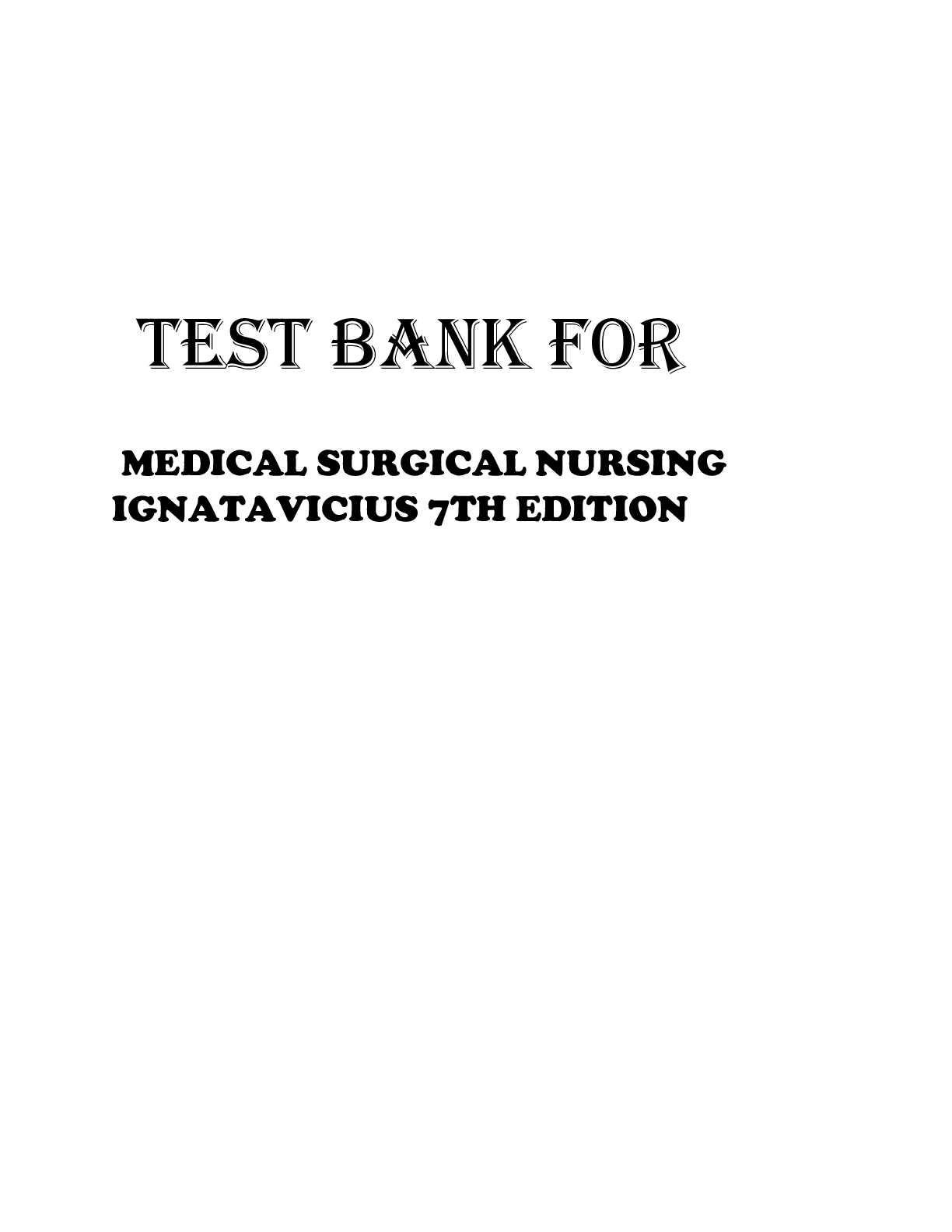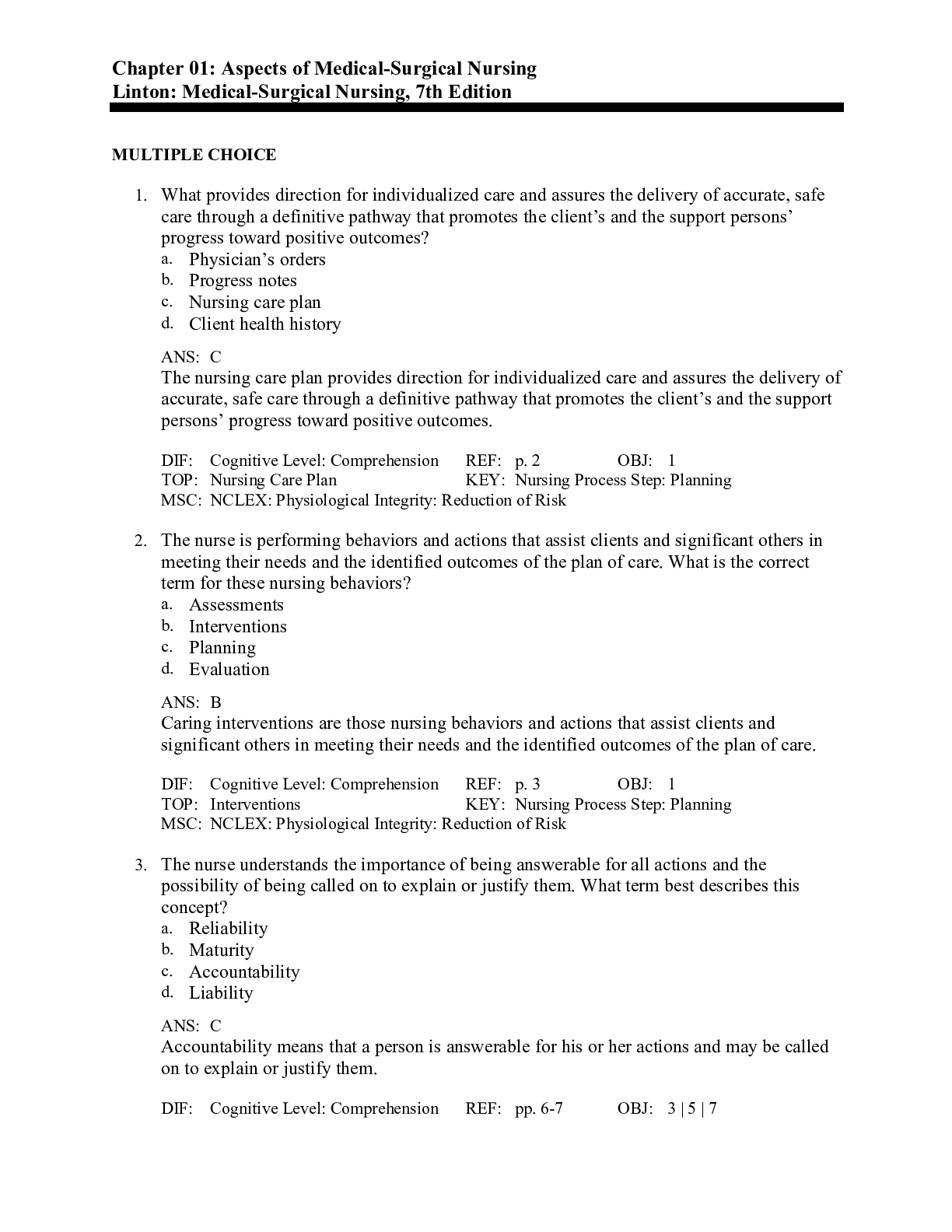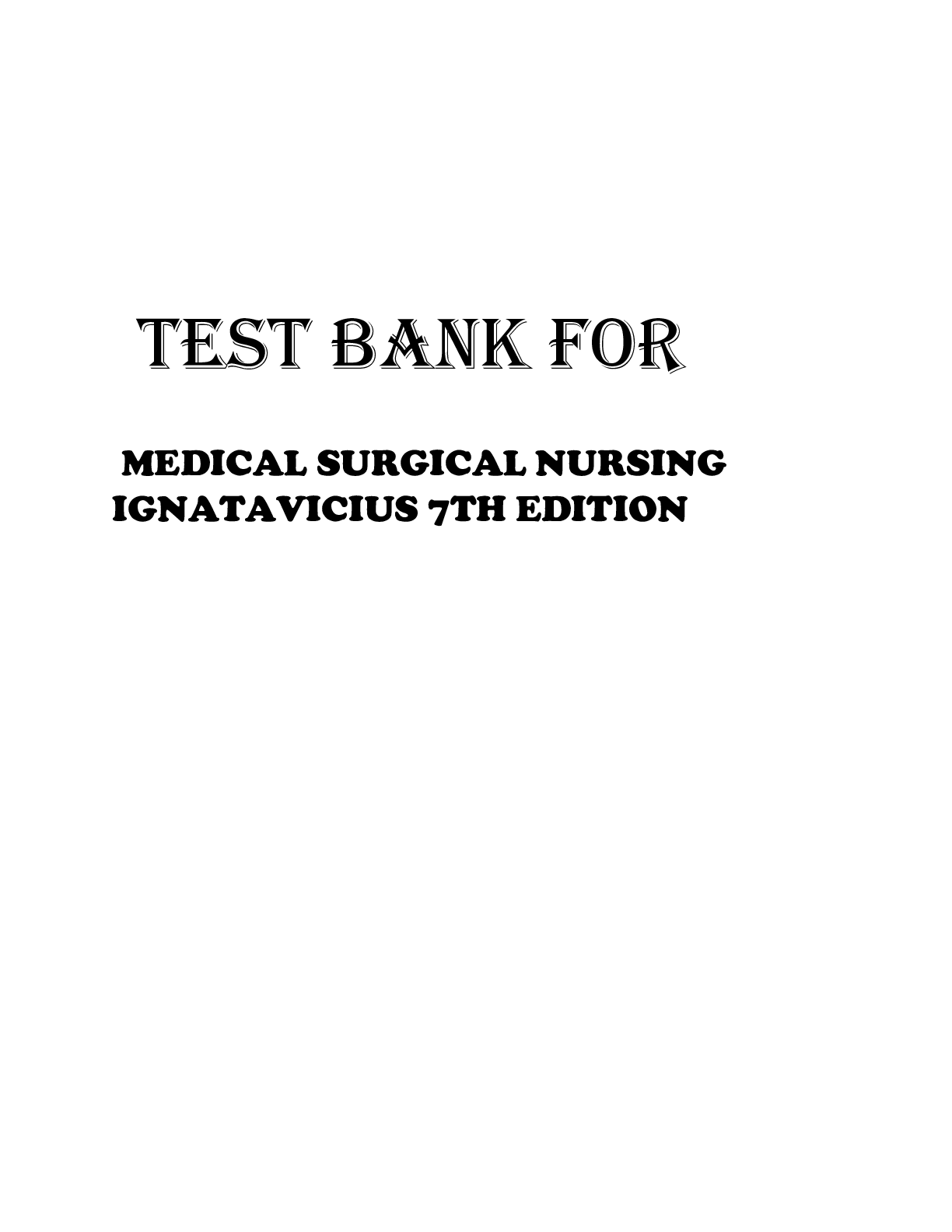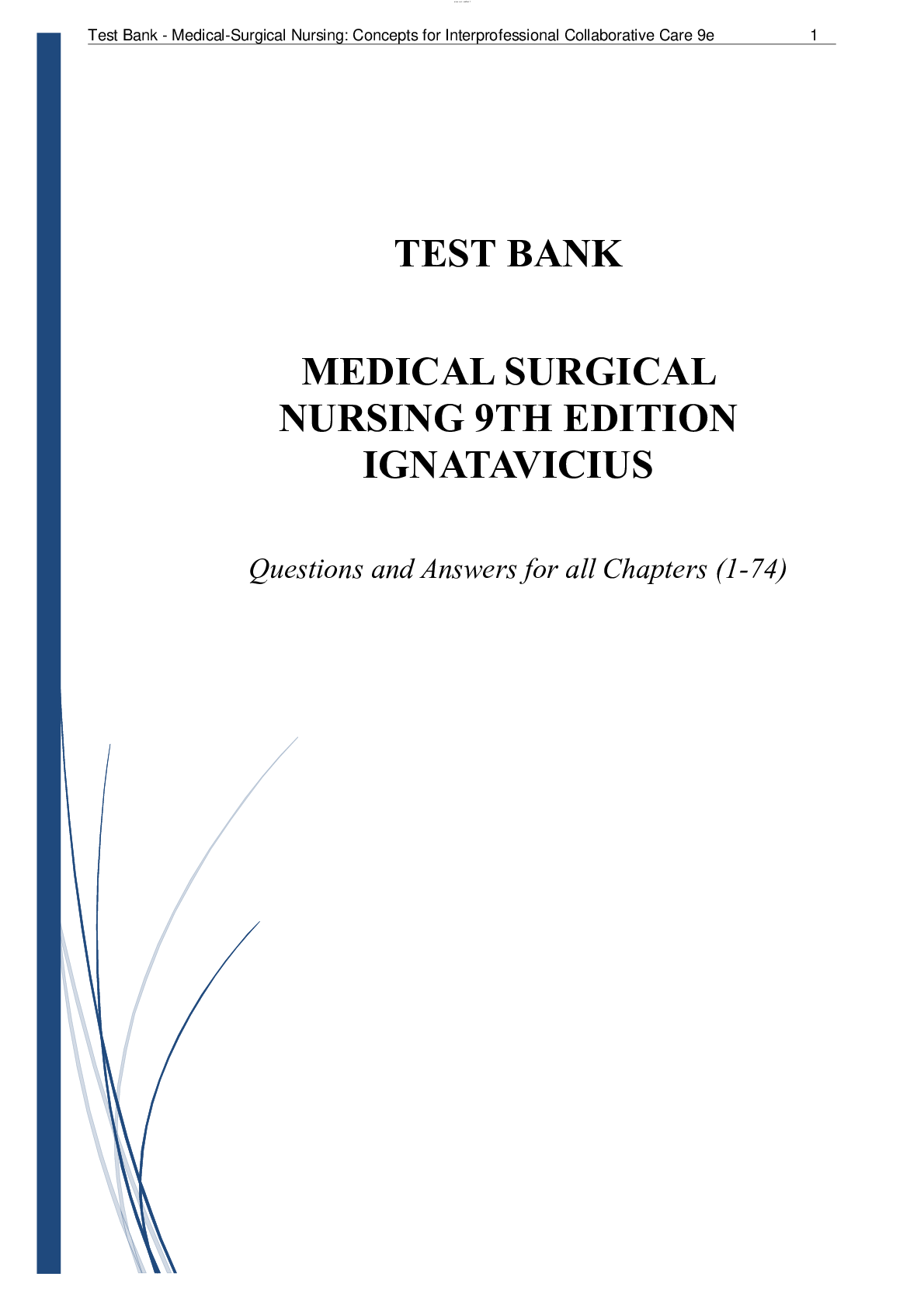*NURSING > TEST BANK > TEST BANK FOR MEDICAL SURGICAL NURSING CONCEPTS AND PRACTICE 3RD EDITION BY DEWIT (All)
TEST BANK FOR MEDICAL SURGICAL NURSING CONCEPTS AND PRACTICE 3RD EDITION BY DEWIT
Document Content and Description Below
Chapter 02: Critical Thinking and the Nursing Process deWit: Medical-Surgical Nursing: Concepts & Practice, 3rd Edition MULTIPLE CHOICE 1. Which foundational behavior is necessary for effective critic... al thinking? a. Unshakable beliefs and values b. An open attitude c. An ability to disregard evidence inconsistent with set goals d. An ability to recognize the perfect solution ANS: B An open attitude not clouded by unshakable beliefs and values or preset goals allows the application of critical thinking. Acceptance that there may not be a perfect solution leaves the field open to new ideas. PTS: 1 DIF: Cognitive Level: Comprehension REF: 16, Box 2-1 OBJ: 2 (theory) TOP: Factors Influencing Critical Thinking KEY: Nursing Process Step: N/A MSC: NCLEX: Health Promotion and Maintenance 2. Which fundamental belief underscores the basis of the nursing process? a. Recognition that basic needs must be met by the individual without assistance. b. Acknowledgment that patients and families appreciate an efficient health care system that functions without their input. c. A focus on disease control as the most important aspect of patient care. d. Recognition that all people haN veURwSoIrN thGTaB n d. CdOiMgnity. ANS: D The nursing process is based on the belief that all people have worth and dignity. Patient-centered care that is applied to all aspects of the patient’s health, and is not just disease oriented, is appreciated by the family and patient. Holistic care approach can support the patient to meet basic needs. PTS: 1 DIF: Cognitive Level: Comprehension REF: 17 OBJ: 5 (theory) TOP: Basic Beliefs Pertinent to the Nursing Process KEY: Nursing Process Step: Implementation MSC: NCLEX: Safe, Effective Care Environment: Coordinated Care 3. The nurse is assessing a new patient who complains of his chest feeling tight. The patient displays a temperature of 100° F and an oxygen saturation of 89%, and expectorates frothy mucus. Which finding is an example of subjective data? a. Temperature b. Oxygen saturation c. Frothy mucus d. Chest tightness ANS: D Subjective data is information given by the patient that cannot be measured otherwise. The other data are considered objective data. Objective data are pieces of information that can be measured by the examiner. The nurse should avoid making judgments or conclusions when obtaining data. [Show More]
Last updated: 2 years ago
Preview 1 out of 367 pages
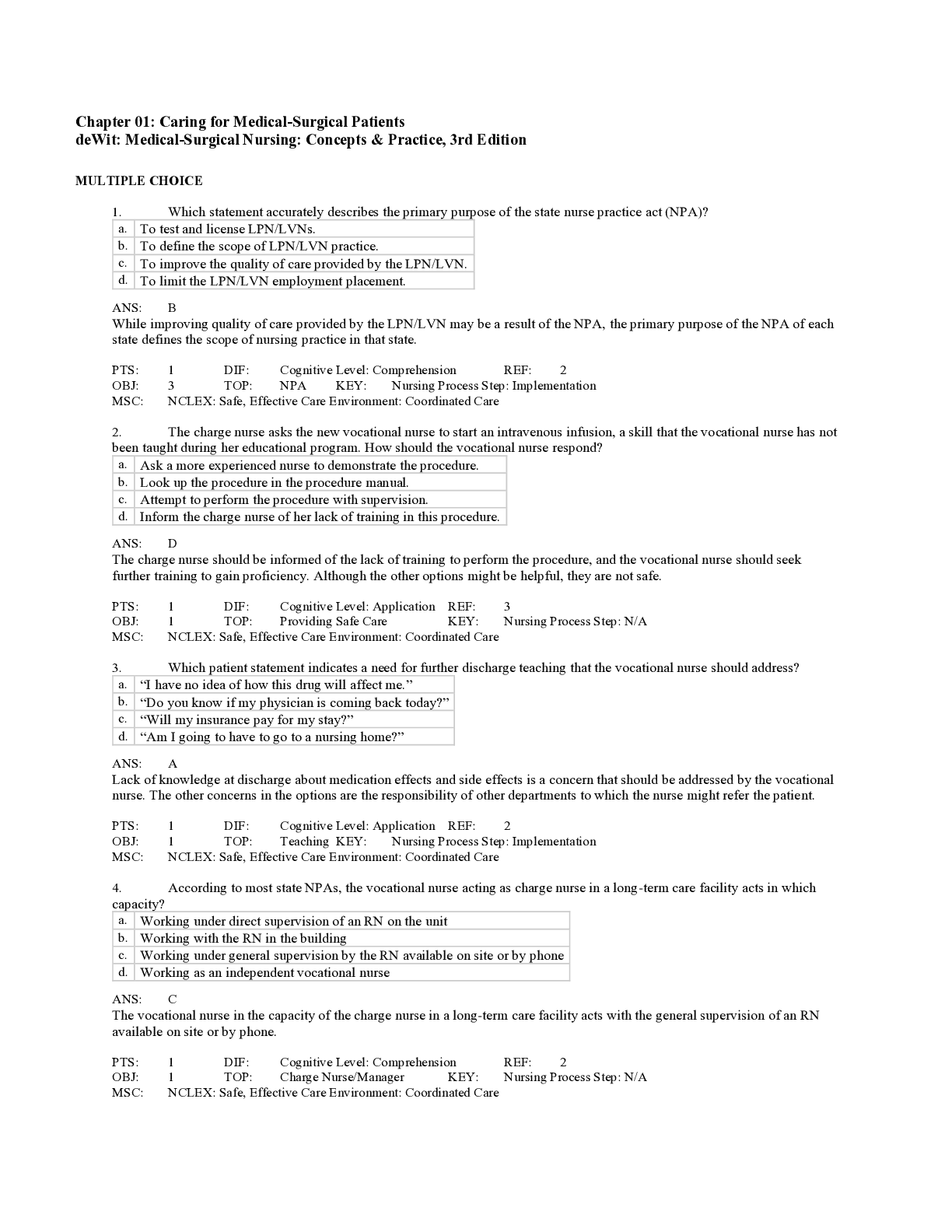
Buy this document to get the full access instantly
Instant Download Access after purchase
Buy NowInstant download
We Accept:

Reviews( 0 )
$15.00
Can't find what you want? Try our AI powered Search
Document information
Connected school, study & course
About the document
Uploaded On
Feb 28, 2022
Number of pages
367
Written in
Additional information
This document has been written for:
Uploaded
Feb 28, 2022
Downloads
0
Views
115

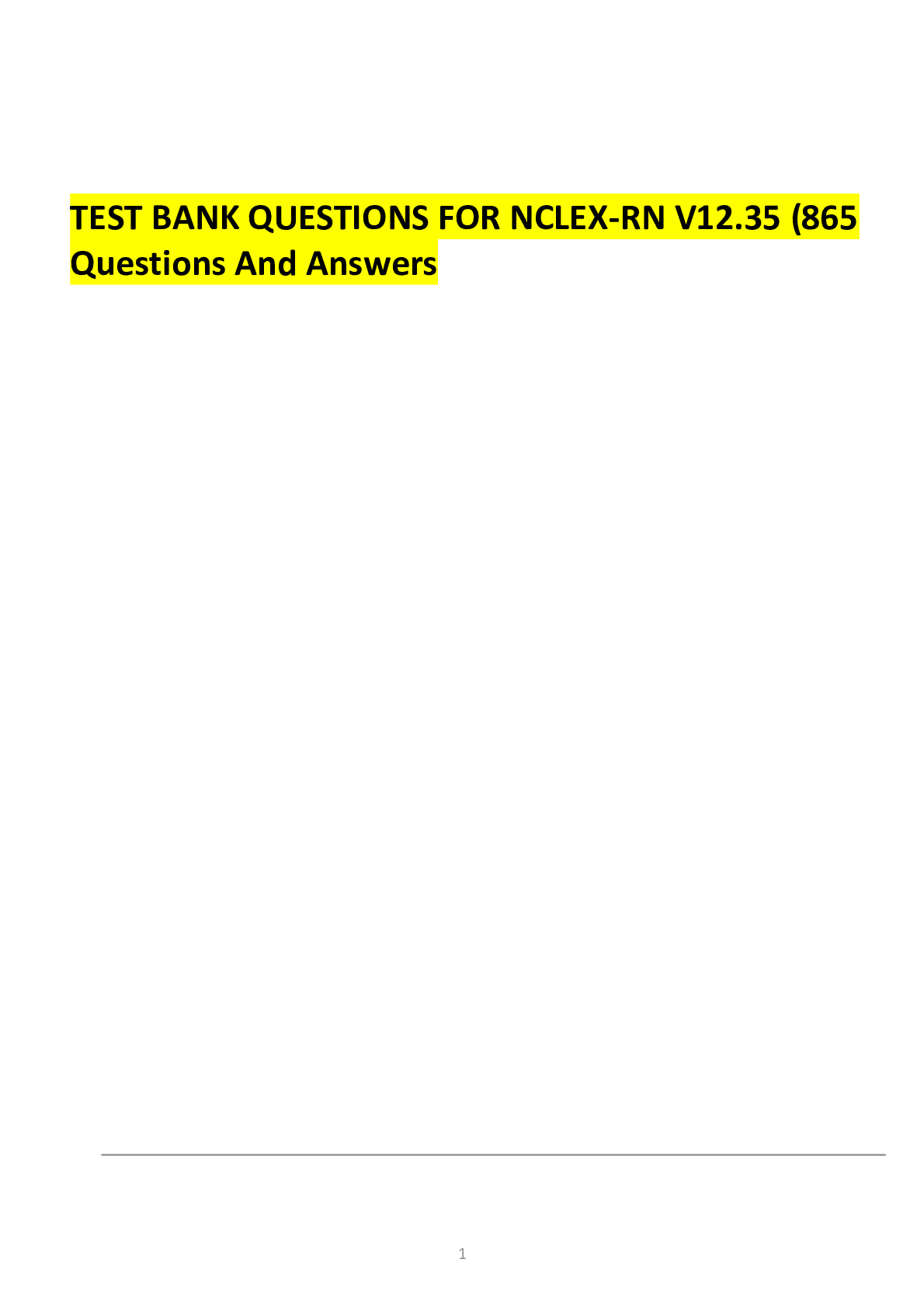
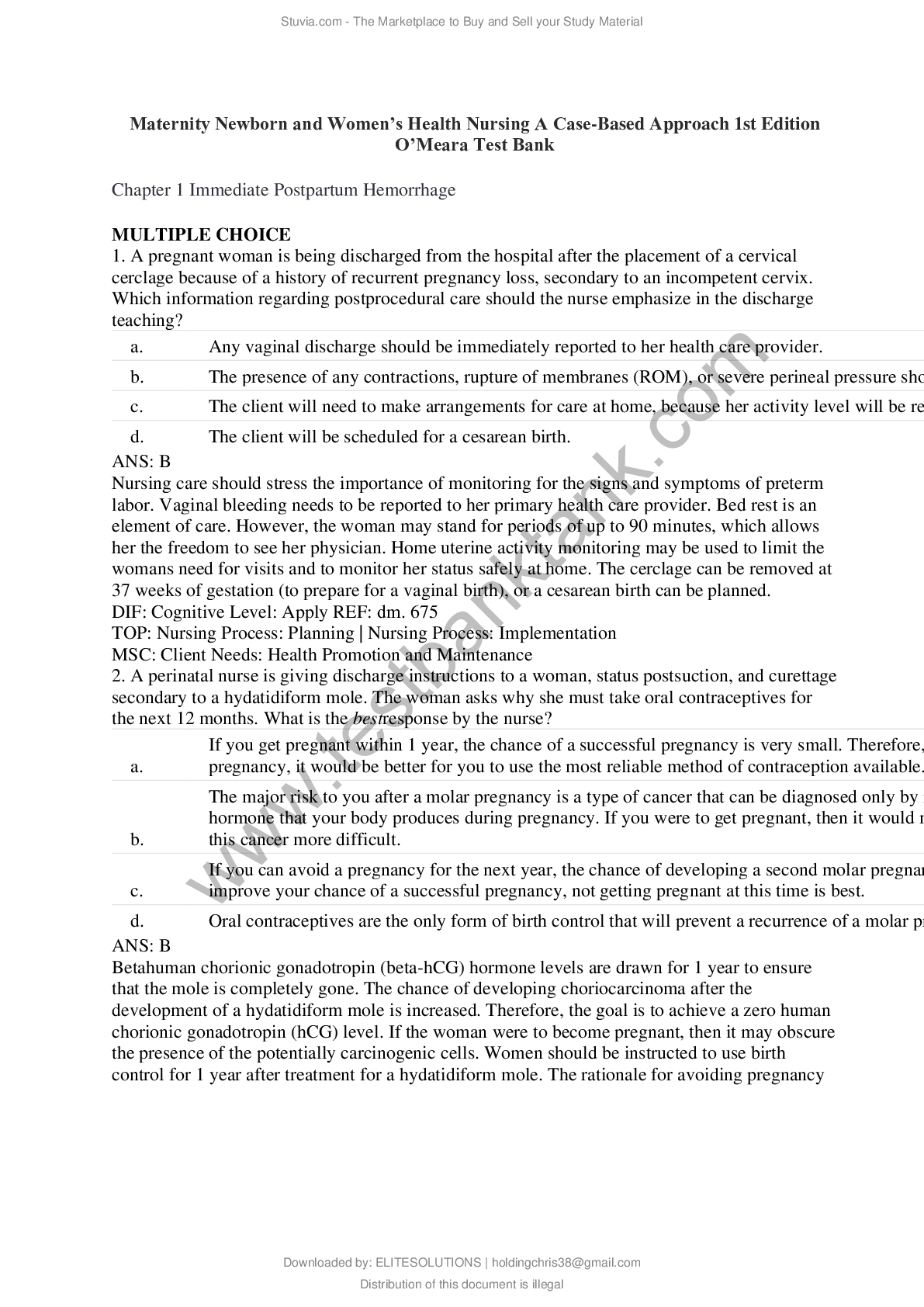
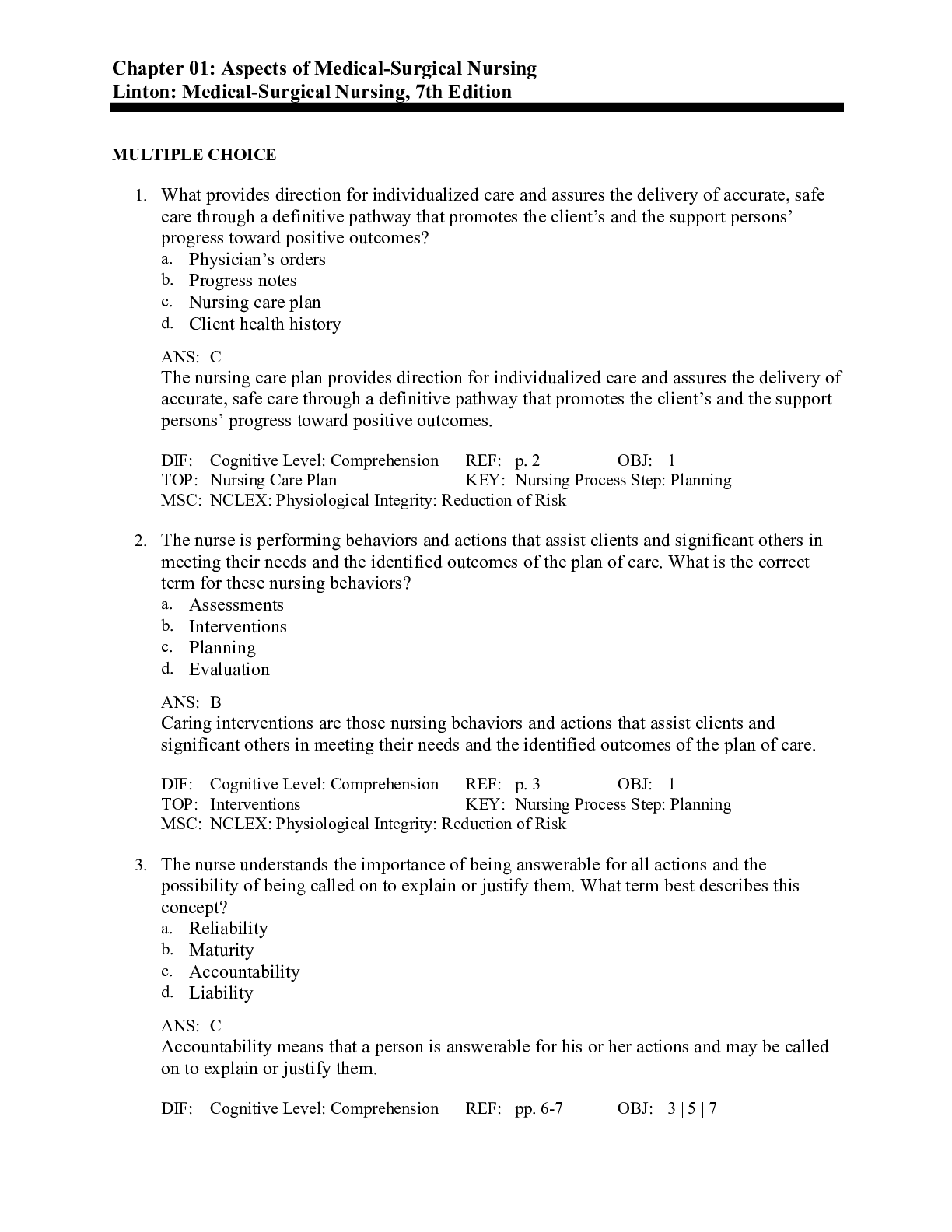




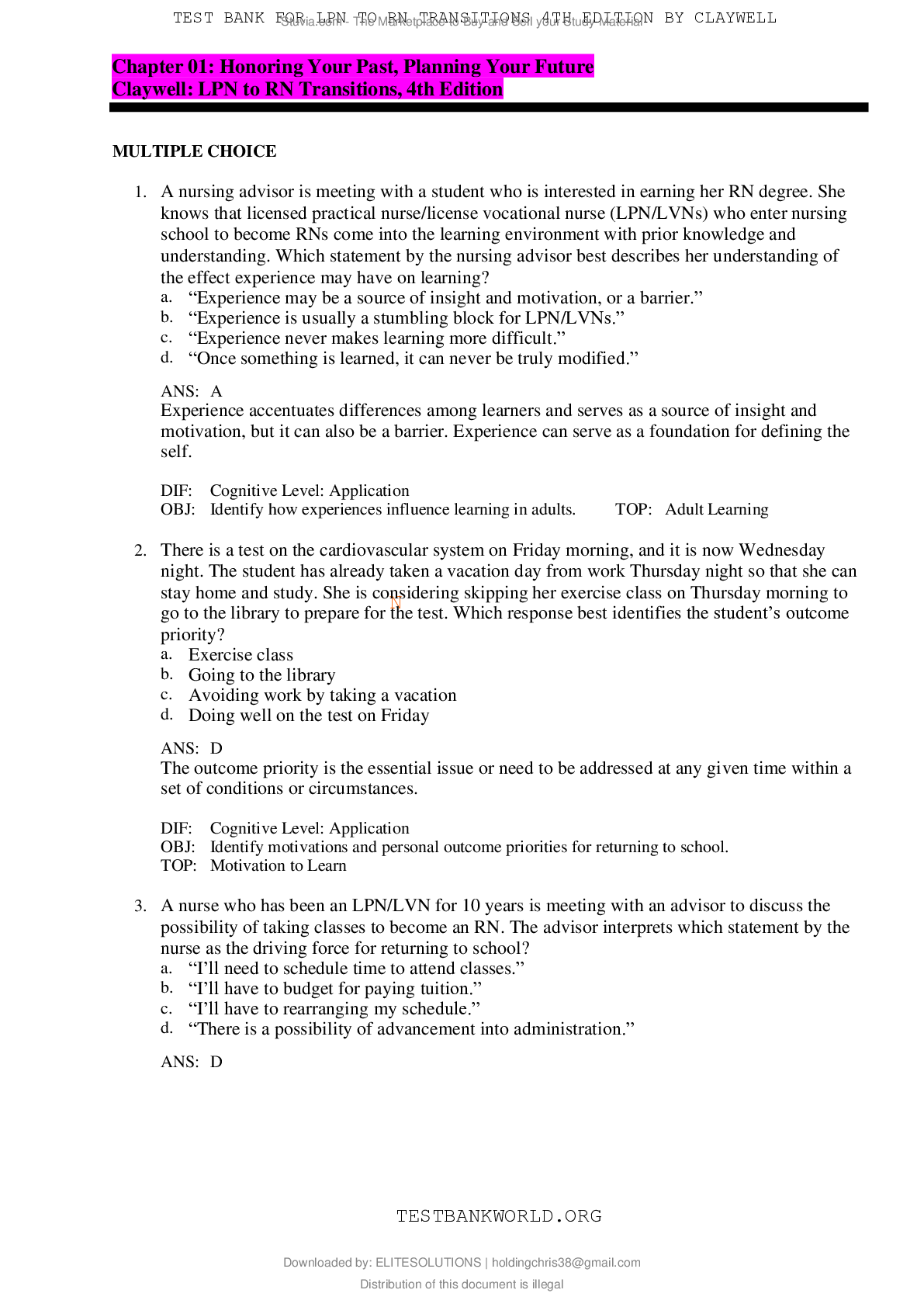
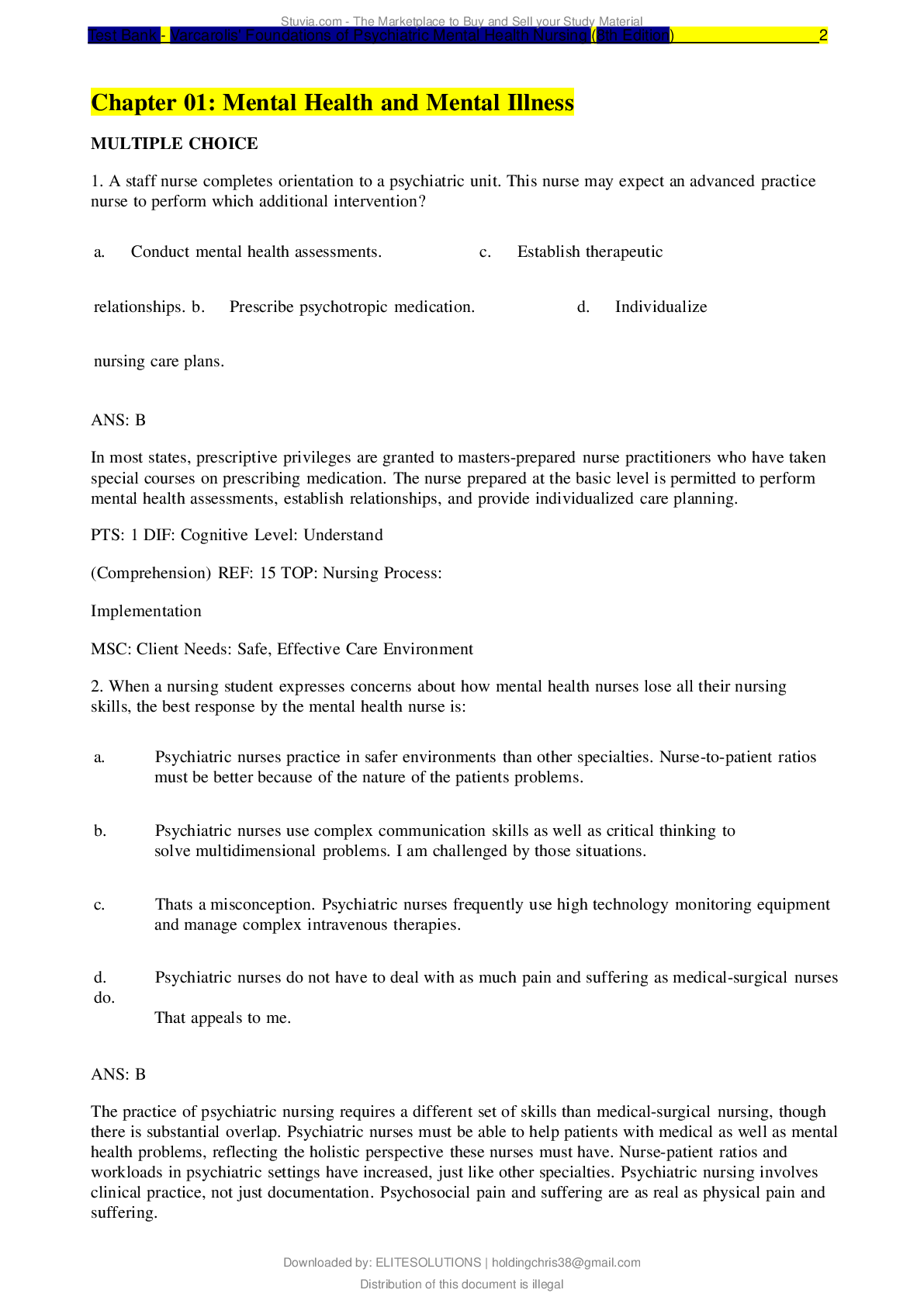
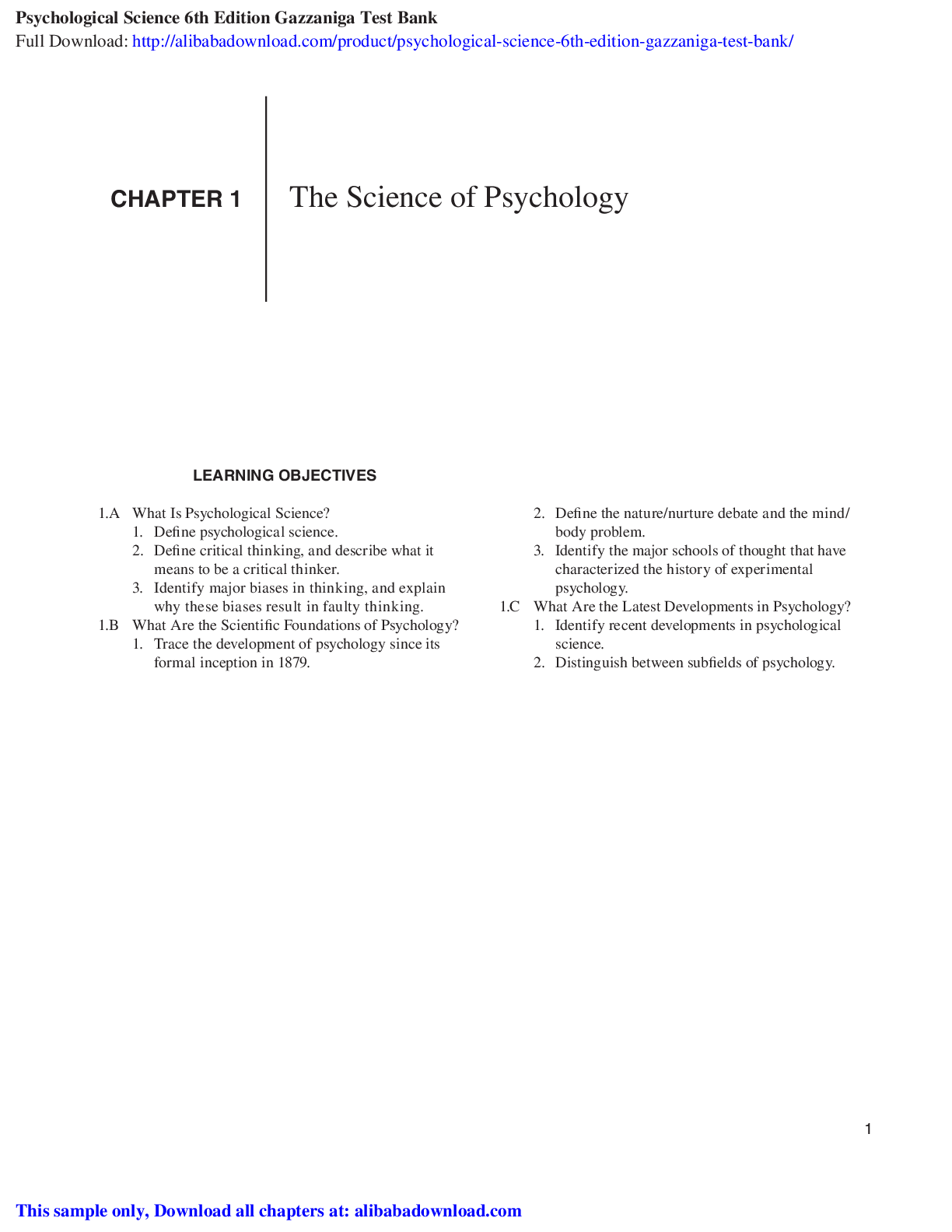


.png)
